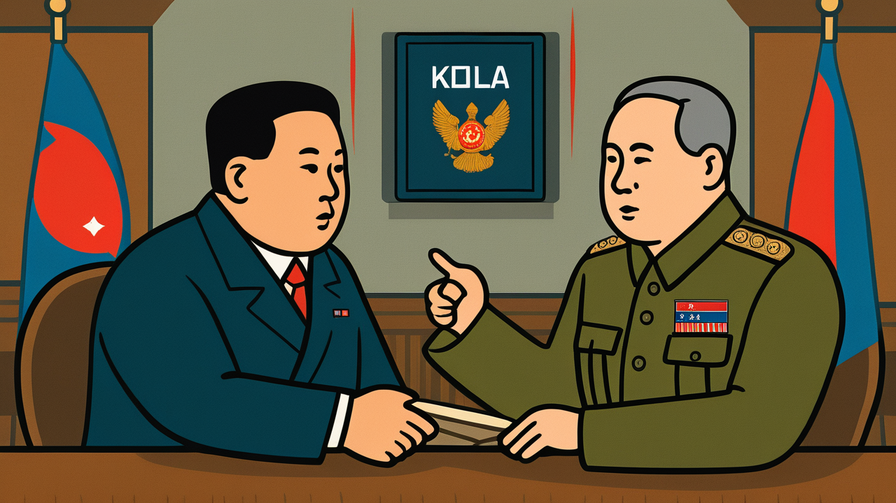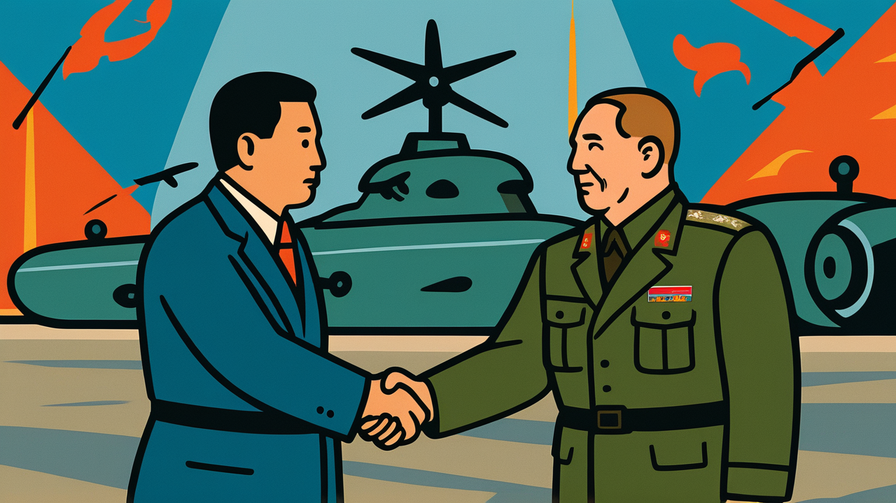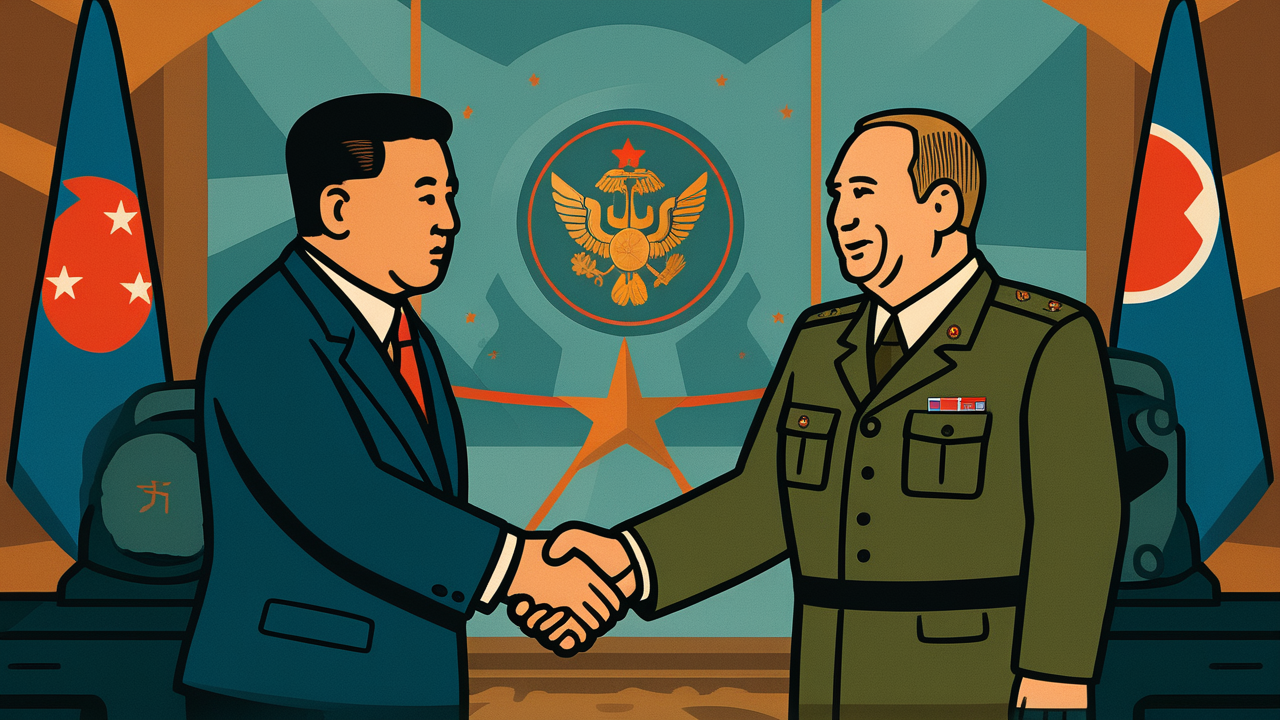[Disclaimer] This article is reconstructed based on information from external sources. Please verify the original source before referring to this content.
News Summary
The following content was published online. A translated summary is presented below. See the source for details.
A new United Nations investigation has revealed extensive illegal military cooperation between North Korea and Russia, violating international sanctions. The report, presented by U.S. State Department official Seth Bailey at the UN, provides evidence that North Korea has been sending weapons and military equipment to Russia, likely for use in the Ukraine conflict. Even more concerning, the report documents that Russia is training North Korean soldiers on Russian territory and transferring advanced military technology to North Korea in return. This cooperation is monitored by the Multilateral Sanctions Monitoring Team (MSMT), a group of 11 democratic nations including the United States, United Kingdom, Japan, South Korea, and others. The MSMT was created after Russia blocked the previous UN monitoring system by vetoing its renewal. The report emphasizes that these activities violate multiple UN Security Council resolutions designed to prevent North Korea from expanding its military capabilities and nuclear weapons program.
Source: U.S. Department of State
Our Commentary
Background and Context

To understand why this matters, we need to know about UN sanctions. These are like international rules that say certain countries can’t buy or sell specific things. North Korea has been under strict UN sanctions since 2006 because of its nuclear weapons program. These sanctions ban countries from selling weapons to North Korea or buying weapons from them.
The Multilateral Sanctions Monitoring Team (MSMT) is like a group of international detectives. Their job is to watch for countries breaking these rules. The team includes 11 democratic countries: Australia, Canada, France, Germany, Italy, Japan, Netherlands, New Zealand, South Korea, the United Kingdom, and the United States.
Why did they create this new team? Until 2024, the UN had an official “Panel of Experts” doing this job. But Russia used its veto power to shut down that panel. As one of five permanent UN Security Council members, Russia can block any UN decision it doesn’t like. So these 11 countries created their own monitoring team to keep tracking sanctions violations.
Expert Analysis
This military cooperation represents a dangerous new alliance. For Russia, currently fighting in Ukraine and running low on ammunition, North Korean weapons provide crucial supplies. North Korea has massive stockpiles of Soviet-era ammunition that fits Russian weapons systems. Satellite images have shown trains carrying thousands of containers from North Korea to Russia.
For North Korea, this deal offers something even more valuable: advanced military technology. Russia has sophisticated missile, satellite, and potentially nuclear technology that North Korea desperately wants. If Russia shares this knowledge, it could help North Korea develop more dangerous weapons, threatening South Korea, Japan, and even the United States.
The training of North Korean troops in Russia is particularly alarming. These soldiers could gain combat experience in Ukraine, then return home to train others. This would significantly improve North Korea’s military capabilities without them fighting their own war.
International law experts emphasize that both countries are violating multiple UN resolutions. These aren’t just suggestions – they’re binding international law that all UN members must follow.
Additional Data and Fact Reinforcement
Evidence of this cooperation includes:
– Satellite imagery showing over 1,000 containers shipped from North Korea to Russia
– Reports of North Korean ammunition found in Ukraine battlefields
– Unusual military flights between Pyongyang and Moscow
– Russian military delegations visiting North Korea’s weapons factories
– Financial transactions through hidden networks to avoid sanctions
The scale of cooperation:
– Estimated 2.5 million artillery shells transferred from North Korea
– Approximately 10,000 North Korean workers sent to Russia
– Dozens of ballistic missiles potentially included in shipments
– Unknown amount of Russian technology transferred to North Korea
Why this matters globally:
– Prolongs the Ukraine conflict by resupplying Russian forces
– Strengthens North Korea’s nuclear and missile programs
– Undermines the entire UN sanctions system
– Creates a precedent for other sanctioned countries to cooperate
Related News
This report comes amid escalating tensions:
– North Korea has conducted multiple missile tests in 2025, showing improved capabilities
– Russia has become increasingly isolated, seeking allies among other sanctioned nations
– China has expressed concern about military cooperation so close to its borders
– South Korea and Japan have increased defense cooperation in response
– The U.S. has deployed additional military assets to the Korean Peninsula
Other sanctioned countries are watching closely:
– Iran has also increased military cooperation with Russia
– Belarus serves as a transit point for sanctioned goods
– Syria has offered to send fighters to support Russia
Summary

The MSMT report exposes a dangerous new reality: two heavily sanctioned countries are openly defying international law by trading weapons and military technology. This isn’t just about rules on paper – it has real consequences for global security.
For Russia, North Korean weapons help continue its war in Ukraine. For North Korea, Russian technology could accelerate its nuclear weapons program, threatening millions of people in Asia and beyond. The training of North Korean soldiers in actual combat creates a more capable and dangerous military that could destabilize the Korean Peninsula.
Perhaps most concerning is what this means for the international system. If countries can simply ignore UN sanctions when it suits them, the entire framework for preventing war and weapons proliferation begins to crumble. The creation of the MSMT shows democratic nations trying to uphold these rules, even as authoritarian states work together to break them.
Public Reaction
International response has been swift and concerned. South Korean citizens express increased anxiety about North Korea gaining advanced weapons. Ukrainian officials point to this as evidence of Russia’s desperation. Human rights groups worry about North Korean soldiers being used as “cannon fodder” in Ukraine. Meanwhile, Russian and North Korean state media deny any illegal cooperation, calling the reports “Western propaganda.”
Frequently Asked Questions
Q: What are UN sanctions exactly?
A: They’re international laws that ban certain activities, like selling weapons or technology to specific countries. Breaking them can result in economic punishment or international isolation.
Q: Why can Russia veto UN decisions?
A: As one of five permanent Security Council members (along with the U.S., UK, France, and China), Russia has veto power – a leftover from World War II when these powers shaped the UN.
Q: Could this lead to a bigger war?
A: While concerning, most experts believe both countries want to avoid direct conflict with the West. However, better North Korean weapons do increase risks of accidents or miscalculations.
Q: What can be done to stop this cooperation?
A: Countries can increase their own sanctions, intercept shipments, pressure China to intervene, and support the MSMT’s monitoring efforts. Military deterrence also plays a role in preventing escalation.


